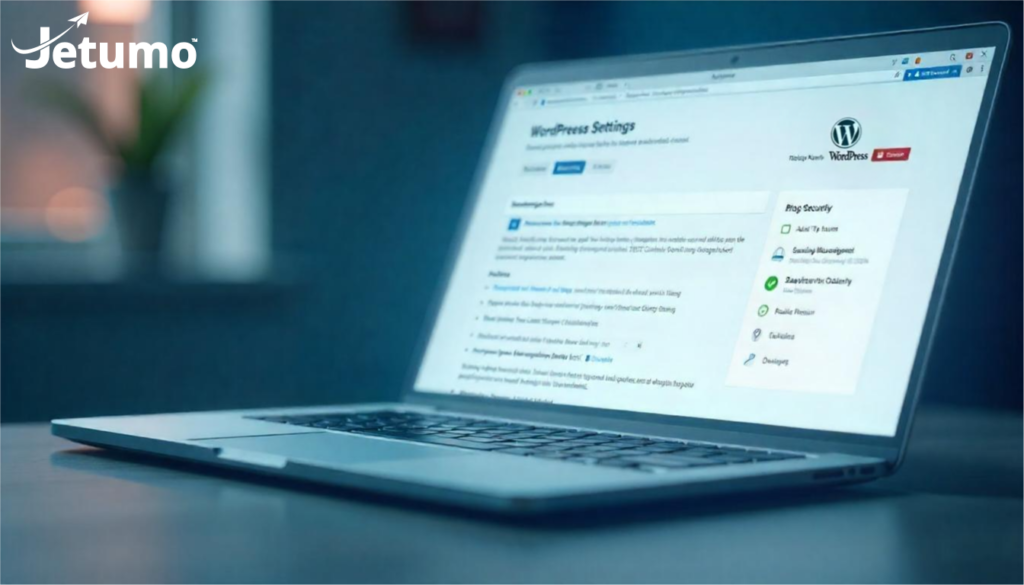If you’re running a small business website, security often feels like foreign territory filled with technical jargon and complex solutions. You know protecting your website is important, but you’re not sure what you actually need to worry about without becoming a cybersecurity expert. This guide cuts through the complexity to give you a clear understanding of website security in terms that make sense for your business – no technical degree required.
Why Does Website Security Matter for Your Small Business?
Many small business owners think, “My website isn’t important enough to be targeted by hackers.” Unfortunately, that’s exactly what cybercriminals are counting on. Small business websites are targeted precisely because they often lack proper protection.
The reality about website security is sobering:
- 43% of cyber attacks specifically target small businesses
- The average cost of a security breach for small businesses is over $25,000
- 60% of small companies go out of business within six months of a cyber attack
But website security isn’t just about preventing hackers. It’s about:
- Protecting your business reputation – A hacked website damages customer trust
- Maintaining your revenue – Website downtime means lost sales
- Safeguarding sensitive information – Protecting customer data
- Preserving your search rankings – Compromised sites often get penalized by search engines
What Are the Most Common Security Threats to Small Business Websites?
Before exploring protection measures, let’s understand what you’re defending against. Here are the most common website security threats in plain language:
Malware
What it is: Malicious software designed to damage your website or steal information.
What it means for your business: Imagine someone breaking into your store and replacing your products with counterfeits. Malware can display unwanted ads, steal information, or completely disable your website functionality. Common types include virus infections and ransomware that locks your data until you pay a fee.
Phishing Attacks
What it is: Attempts to trick you into revealing passwords and sensitive information.
What it means for your business: Think of someone calling your business pretending to be from your bank. Phishing often comes as emails that lead to fake login pages designed to steal your credentials, which hackers then use to access your website.
Brute Force Attacks
What it is: Hackers making repeated login attempts using different password combinations.
What it means for your business: It’s like someone trying every possible key to unlock your store’s front door. If successful, attackers gain access to your website’s admin area and can take control of everything.
Data Breaches
What it is: Unauthorized access to your customer or business data.
What it means for your business: A data breach can expose sensitive information like customer details, payment information, or business data. This can lead to identity theft, financial fraud, and serious damage to your business reputation.
How Can You Protect Your Website Without Technical Knowledge?
You don’t need to be an expert to implement effective website security. Here are essential measures that protect your small business website without requiring technical expertise:
Keep Your Website Software Updated
Why it matters: WordPress updates and plugin updates contain security patches for vulnerabilities. Not updating is like ignoring a product recall for your store’s alarm system.
How to protect your site:
- Set up automatic updates when possible
- Check for updates monthly at minimum
- Consider managed WordPress hosting that handles updates for you
Use Strong Authentication Methods
Why it matters: Weak passwords are a vulnerability hackers frequently exploit. Strong password protection is your first line of defense.
How to protect your site:
- Use a password manager to create complex passwords
- Enable two-factor authentication for your website admin
- Limit login attempts to prevent brute force attacks
- Use unique admin usernames (not “admin”)
Implement Regular Website Backups
Why it matters: Regular backups are your business insurance policy. If your site gets hacked, you can restore it quickly.
How to protect your site:
- Set up automated backups that store copies in separate locations
- Test your backup restoration process occasionally
- Keep multiple backup points (daily, weekly, monthly)
- Ensure your web hosting provider includes reliable backup services
Install Security Software with Firewall Protection
Why it matters: Security software acts like a security system for your website, blocking potential threats before they can cause harm.
How to protect your site:
- Choose a reputable security plugin with firewall capabilities
- Look for features like malware scanning and login security
- Set up automated security scans to check for malicious code
- Consider using antivirus software on your business computers too
Use SSL Certificates to Encrypt Data
Why it matters: SSL certificates encrypt data between visitors’ browsers and your website, protecting sensitive information from being intercepted.
How to protect your site:
- Check if your website is already using HTTPS (look for the lock icon in the browser)
- If not, ask your web hosting provider about adding an SSL certificate
- Ensure all forms collecting sensitive information are secure
What Warning Signs Indicate Your Website May Be Compromised?
Even with security measures in place, it’s important to know the signs of a potential breach. Here are warning signs your small business website might have security issues:
- Unexpected changes to your website appearance
- Unusually slow website performance
- Pop-ups or redirects to other websites
- New admin users you didn’t create
- Warnings about your site containing malware
- Suspicious activity in your web analytics
- Customer complaints about security warnings
What Should You Do If Your Website Gets Hacked?
If you suspect a security breach, don’t panic. Here’s a simple plan to secure your website:
- Temporarily take your website offline if possible to prevent further damage
- Change all passwords immediately with new strong passwords
- Restore from a clean backup from before the hack occurred
- Scan for malware to identify and remove any malicious code
- Update all software to patch any vulnerabilities
- Document what happened for both technical and legal purposes
- Notify affected parties if sensitive information was compromised
- Consider getting professional help from security experts
Should You Handle Website Security Yourself or Get Professional Help?
Consider DIY Security When:
- You’re comfortable implementing basic security measures
- You have time to monitor your website regularly
- You’re using standard website features with popular plugins
- You don’t collect highly sensitive customer information
Consider Professional Security Help When:
- Your website processes payments or stores sensitive data
- You don’t have time to stay on top of security updates
- You’ve experienced a security breach in the past
- Your business would face significant losses from website downtime
- You want peace of mind knowing experts are protecting your site
How Does Managed WordPress Hosting Improve Your Website Security?
One simple way to enhance your website security without becoming a cybersecurity expert is to choose the right hosting partner. Managed WordPress hosting typically includes these security features:
- Automatic WordPress updates to patch vulnerabilities
- Regular malware scanning and removal
- Web application firewall to block malicious traffic
- Automated website backups with easy restore options
- Security experts monitoring for online threats
- Proactive security patching
With the right hosting provider, you can focus on running your small business while experts handle the technical aspects of keeping your website secure.
What Free Cybersecurity Resources Are Available for Small Businesses?
Several government agencies offer free resources to help small businesses with cybersecurity:
- The Small Business Administration offers a “Small Biz Cyber Planner 2.0”
- The Federal Trade Commission provides guidance on data security
- The Federal Communications Commission offers a cybersecurity planning tool
- Many gov websites contain educational resources about protecting small business data
These resources can help you create a plan for your website security needs.
How Can You Create a Simple Cybersecurity Strategy for Your Business?
Developing a basic cybersecurity strategy doesn’t have to be complicated:
- Assess your current security: What measures do you already have in place?
- Identify your most valuable data: What needs the strongest protection?
- Implement basic security measures: Updates, backups, strong passwords
- Train anyone who accesses your website: Security is only as strong as the weakest link
- Create a response plan: Know what to do if something goes wrong
- Review regularly: Security is an ongoing process, not a one-time task
Website Security Checklist: Key Points to Remember
- ✅ Keep all software updated to patch security vulnerabilities
- ✅ Use strong, unique passwords and two-factor authentication
- ✅ Install security software with firewall and malware scanning
- ✅ Back up your website regularly and test restoration procedures
- ✅ Install an SSL certificate to encrypt sensitive information
- ✅ Monitor your website for signs of suspicious activity
- ✅ Create a security breach response plan before you need it
- ✅ Consider professional security help if you handle sensitive data
- ✅ Be cautious with plugins and add-ons – only use trusted sources
- ✅ Keep learning about emerging threats to stay protected
Your website is a crucial business asset. Protecting it with proper security measures isn’t just about preventing technical problems—it’s about safeguarding your reputation, revenue, and customer relationships.
Need help securing your WordPress website? Jetumo’s managed WordPress hosting includes comprehensive security measures and expert support, so you can stop worrying about website security and focus on growing your business.



